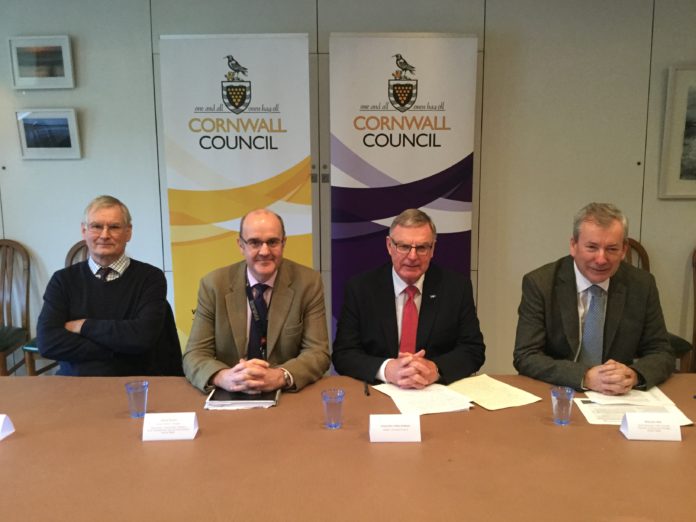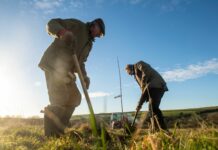Cornwall and the Isles of Scilly are meeting the challenges of Brexit head on, and doing everything they can to exploit the opportunities to the full.
That’s the message from New County Hall, following a series of SWOT analysis meetings between business leaders and the public and voluntary sectors.
Over recent months, Cornwall Council organised eight roundtable discussions ranging from tourism to fishing, employment to energy, and farming to higher education.
As well as discussing the potential risks for the future posed by Brexit, the meetings have also begun to identify some of the positive opportunities when Article 50 is invoked.
These round table discussions were initiated by an informal ‘futures’ group that itself grew out of a Brexit Breakfast held in July, convened jointly by the Bishop of Truro and Council Leader John Pollard.
There’s a second such summit planned for February, so an even wider group can come together and look at the coordinated findings of this work.
“I am confident that we are doing more in Cornwall and the Isles of Scilly to co-ordinate our approach to Brexit than virtually any other area of the UK”
The House of Commons Select Committee on Exiting the EU, chaired by former shadow foreign secretary Hilary Benn MP, has agreed to come to Cornwall in the New Year to look at this coordinated activity, and discuss the situation with a range of local people.
Cllr Pollard said: “After the referendum result last summer, everyone I spoke to in Cornwall was determined that we should not only identify and work out how to minimise the risks for us, but also work hard at spotting all the positive opportunities, and begin shaping how we can make the most of them.
“Following discussions with the Local Government Association, I am confident that we are doing more in Cornwall and the Isles of Scilly to co-ordinate our approach to Brexit than virtually any other area of the UK.”
Speaking as the initial findings of the work are published, Kim Conchie, chief executive of the Cornwall Chamber of Commerce, added: “Although nationally there is still a great deal of uncertainty, this is a good time to share the progress we have been making.
“I am grateful to the many people from all parts of Cornwall and the Isles of Scilly who’ve been involved in the discussions so far, from university academics to top business leaders, from farmers to the voluntary sector, from restauranteurs to fishermen, and to the two Councils.
“As a community we are very strong when the whole community comes together with a single purpose of planning how to give Cornwall and the Isles of Scilly the best future possible.”
Examples of the positive opportunities spotted, and the risks identified that need to be carefully managed are:
Tourism, Culture and Heritage
- Opportunity – building on international links and reputation, welcoming tourists from beyond Europe, capitalising on current exchange rates that make the UK a favourable holiday destination
- Risk – workforce uncertainties, as the hospitality sector relies on a lot of seasonal workers from EU countries
Fisheries
- Opportunity – ability for local fishermen to more directly influence the future of fishing post Brexit
- Risk – uncertainty over future fisheries and conservation regime post EU
Agriculture, Food and Environment
- Opportunities – ability to shape a new and more market-focused UK agriculture policy focused on farming, environment and landscape outcomes; better opportunities to market Cornwall produce
- Risk – concerns over negative effects caused by changes in the Common Agriculture Policy payment regime; workforce uncertainties
Innovation, Research and Higher Education
- Opportunity – Opportunity to lobby for recruitment of students and academics from all over world
- Risk – EU academic and research networks and funding within the EU









